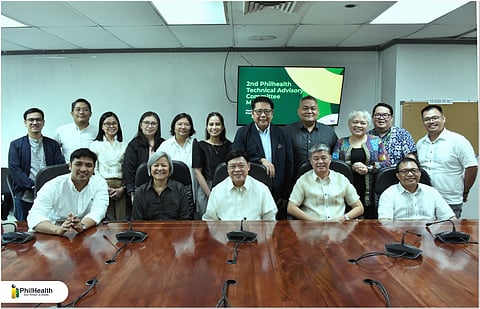
- NEWS
- the EDIT
- COMMENTARY
- BUSINESS
- LIFE
- SHOW
- ACTION
- GLOBAL GOALS
- SNAPS
- DYARYO TIRADA
- MORE

Acting President and CEO Dr. Edwin Mercado of the Philippine Health Insurance Corporation (PhilHealth) convened the Technical Advisory Council (TAC) on 10 March 2025, for its second meeting. The session focused on strengthening actuarial assumptions and refining the selection process for disease coverage.
During the meeting, TAC members examined practical methods to improve actuarial projections, which in turn would offer more sustainable benefit packages for PhilHealth members. Experts also emphasized market-based assumptions to ensure that current healthcare providers can actually deliver the covered services.
"By improving our actuarial assumptions, we can better predict healthcare costs and utilization patterns," explained the PCEO Mercado. "This means we can expand benefits in a sustainable way while ensuring members can actually access the care we're promising."
The TAC supported the PhilHealth leadership’s directive to expand coverage for high-cost, high-burden diseases and thereby increase financial protection for members. This move seeks to ease the burden of catastrophic health expenses that often strain Filipino families.
“Going granular means understanding if our current healthcare infrastructure can deliver the services we’re covering, and developing strategies to create robust markets where they don’t exist. This means not only knowing where the doctors and other professionals are, but also how many patients they can see in a day without compromising the quality of medical services,” the PhilHealth President and CEO added in a mix of English and Filipino. “When we promise coverage for a condition, we want to ensure our members can find qualified providers who can deliver that care without excessive out-of-pocket expenses or long travel times.”
Members of the council committed to building a practical framework that will guide the expansion of benefits while ensuring that the health system’s service delivery capacity can meet increased demand.
